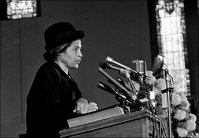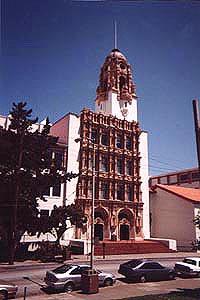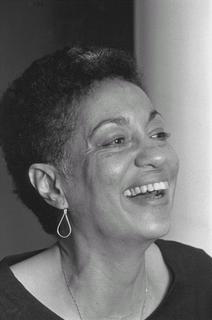 With 3 weeks to go before CA's Nov. 8th Special Election
With 3 weeks to go before CA's Nov. 8th Special Election
The
Alliance for a Better CA field campaign is roaring ahead in SF. The Alliance represents 2 & ½ million Californians up and down the state. Phone banking isn’t easy – but many parents, union members, teachers, nurses, health care workers and community activists are putting in tremendous amounts of energy to defeat the Governor and big business’ efforts to de-fund public education, hurt new teachers and silence workers, labor, and progressive organizations.
how to plug in – 1. For Immigrant communities
http://pilaweb.org/http://www.apacalifornia.org/index.htmlhttp://www.california-partnership.org/http://www.siren-bayarea.org/http://www.immigrantrights.org/2. Youth and student groups
http://www.indyvoter.org/ or
http://www.betterca.com/norcal_officeshttp://www.eqca.org/Join us in the Fight Against Schwarzenegger's Right-Wing Agenda Which Directly Attacks California Students!
Help us protect education, health care, a woman's right to choose and workers rights!
We need your help! All activities take place at 1338 Mission St., between 9th and 10th Streets.
1. November 8th- Take Election Day Off!
2. Weekend Precinct Walking, Saturdays and Sundays until the Election, 9:30 am-2:00 pm
3. Phonebanking Every Night from 5:00-9:00 pm
4. Office Work, Anytime, Every Day, 9:00 am-9:00 pm
Call us at (415) 503-5797 and let us know when you can help.
****
VOTE NO ON PROPOSITIONS 73-78!Proposition 73 makes it harder for young woman to access safe choices.
Proposition 74 will punish new teachers and do nothing to address the real problems in education.
Proposition 75 will take away workers' voice in politics and silence some of Schwarzenegger's most powerful opponents.
Proposition 76 will drastically cut funding for education and health care and give the Governor the power to slash budgets.
Proposition 77 will change legislative districts and could greatly harm the diversity of our State Legislature.
Proposition 78 is funded by drug companies and does nothing to help Californians seeking affordable health care.
We are urging a Yes Vote on Propositions 79 (real prescription drug relief) and Prop 80 (regulation of the energy industry).
See you soon!
Nicole Derse
SF Coalition Director
Alliance for a Better CA
Cell: (415) 374-5429
------------------------------------------------------------------------------------------------
SF League of Pissed off voters –
CA Voter GuideConfused by this whacky special election? The SF League of Pissed Off Voters has done all the research so you don't have to! We took the time to educate ourselves about everything on the ballot, we talked it over, and then we voted. This page is our cheat sheet summary of our endorsements. Follow the links to each item to read what the they're all about.
State Propositions
Prop 73: HELL NO!
Parental Notification of AbortionsProp 74: HELL NO!
Public School Teachers TenureProp 75: HELL NO!
Public Union DuesProp 76: HELL NO!
Governor Budget Power & School Funding LimitsProp 77: NO
Redistricting RouletteProp 78: HELL NO!
Big Pharma's Perscription Drug PlanProp 79: HELL YEAH!
The People's Perscription Drug PlanProp 80: No Endorsement
Electricity Re-regulationWhy You Should Care About this Whack ElectionSchwarzenneger still doesn't get it. California has finally caught on that he's a worse governor than he is an actor, but he's still wasting $45 million of our money on his special election. His props are all about grabbing more power for Arnie and his rich friends while screwing over kids, young women, working people, teachers, and seniors. November 8th is our chance to let the Governator know what we think about his agenda.Meanwhile here in San Francisco, there are some cool city props that we can actually feel good about supporting!
Voter Owned Elections: Public Financing for the Mayor's Race!This isn’t on the Nov. 8 ballot, but it’s a really cool campaign and we need your help to make it happen. The idea of Voter Owned Elections is simple: rather than private interests funding political campaigns, the public funds them. The result is that the politicians are accountable only to the public, rather than their campaign contributors. Check it out at
VoterOwnedElections.orgDo you have any questions or comments about this stuff, or do you want to know more about the San Francisco League? Email us at:
sf@indyvoter.org---------------------------
for more on the league of independent voters' work to build a broader movement with young people and students in the lead -
More
for more info on PILA's "Movement Building Electoral Work"
More
 Oct. 25, 2005 - Thank you sister Rosa for bringing struggle to our movements and inspiring us to fight on!
Oct. 25, 2005 - Thank you sister Rosa for bringing struggle to our movements and inspiring us to fight on!








